Staking Wildflowers – How To Keep Wildflowers Upright In Gardens
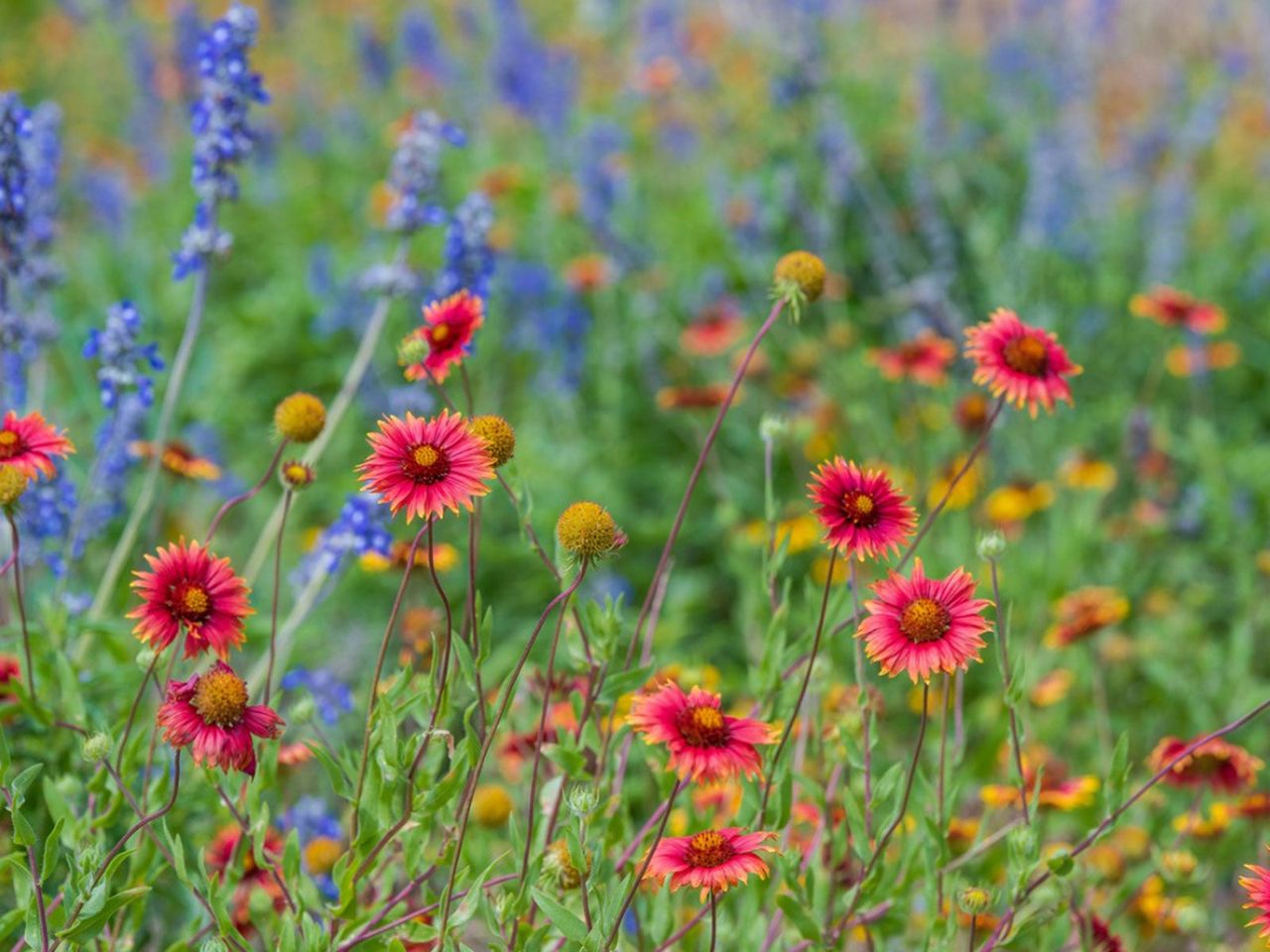

Wildflowers are exactly what the name suggests, flowers that grow naturally in the wild. The beautiful blooms support bees and other important pollinators from spring until fall, depending on the species. Once established, a wildflower garden or meadow requires very little attention and staking most types of wildflowers generally isn’t necessary.
If you notice your wildflowers falling over, however, you may be giving the plants a little too much tender loving care. Read on for helpful tips and learn how to keep wildflowers upright.
Keeping Wildflowers from Drooping
Wildflowers rarely need fertilizer and too much may be to blame for wildflowers falling over. Withholding fertilizer may help your plants develop stronger, sturdier stems. Keep in mind that if wildflowers are planted near your lawn, they are probably absorbing a bit of lawn fertilizer.
Similarly, be sure the soil isn’t too rich. Many species, such as asters, helianthus, black-eyed Susan, coneflower, and verbena, shine in poor rocky soil but tend to develop weak stalks in rich soil.
Be sure your wildflowers are planted in adequate sunlight. Some species are suitable for partial shade, but many wildflowers will be tall and leggy without full sunlight.
Don’t overwater. Many wildflowers are drought-tolerant plants and they’re happier if the soil is allowed to dry between waterings. Some species, including sage, coreopsis, hyssop, black-eyed Susan, and lupine, thrive with very little water even in hot, dry climates.
Many wildflowers develop sturdier stems if they’re cut back early in the season. Cut the stems back by about one-third to half of their height in late spring to early summer to promote bushy, compact growth. Often, this will eliminate the need for staking.
Gardening tips, videos, info and more delivered right to your inbox!
Sign up for the Gardening Know How newsletter today and receive a free copy of our e-book "How to Grow Delicious Tomatoes".
Staking Wildflowers Falling Over
Wildflowers with extra tall stems may need a little help to keep them from falling over. Staking an entire wildflower meadow or field may not be practical, but staking is easy enough in a small area or flower bed.
Position wildflowers carefully. If you have a lot of flowers, try planting weak-stemmed wildflowers along with prairie grass that will provide support. You can also plant next to sturdy-stemmed perennials, or against hedges and evergreen shrubbery.
Heavy-headed wildflowers may benefit from tomato cages or plastic-coated wire cages. You can also stake droopy wildflowers with bamboo and twine. Install stakes early in the season to prevent damage to the roots. Add string as the plant grows throughout the season.

A Credentialed Garden Writer, Mary H. Dyer was with Gardening Know How in the very beginning, publishing articles as early as 2007.
-
 7 Vegetables To Plant In April: Start Indoors Or Outside For A Bumper Summer Harvest
7 Vegetables To Plant In April: Start Indoors Or Outside For A Bumper Summer HarvestAchieve your growing ambitions with these best vegetables to plant in April – including cold-hardy crops to sow direct and tender varieties to start indoors
By Mary Ellen Ellis
-
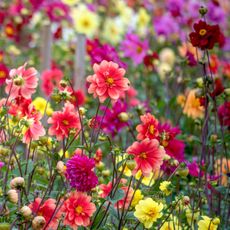 Cut Flower Garden For Beginners: 8 Easy Decorative Floral Plants For Newbies To Grow
Cut Flower Garden For Beginners: 8 Easy Decorative Floral Plants For Newbies To GrowAre you new to growing decorative florals for bouquets and ornamental displays? A cut flower garden for beginners is well within reach if you grow these flower seeds
By Tonya Barnett
-
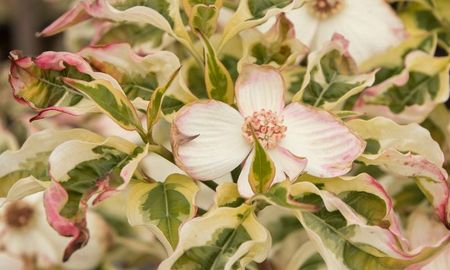 20 Hard-to-Find Spring Flowers & Plants That Look Amazing All Season
20 Hard-to-Find Spring Flowers & Plants That Look Amazing All SeasonIt’s finally beginning to look like spring! If you’re eager to find some unique, hard-to-find varietals to satisfy your spring fever, look here first.
By Caroline Bloomfield
-
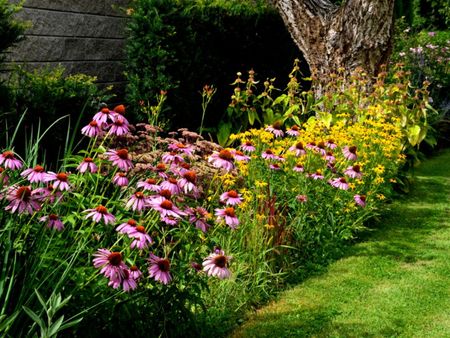 How Wildflower Strips Help Attract Pollinators To Your Yard
How Wildflower Strips Help Attract Pollinators To Your YardIf you have a small garden spot or strip available, fill it with wildflowers for our hungry pollinators. Click to learn more.
By Tonya Barnett
-
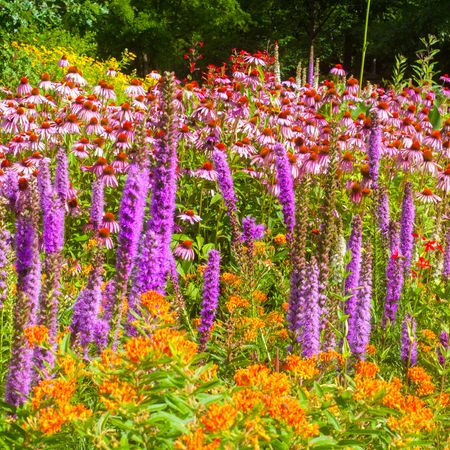 10 Knockout Native Flowers To Add A Punch Of Color To Your Garden
10 Knockout Native Flowers To Add A Punch Of Color To Your GardenGrowing native is the way to go. See our list of ten native wildflowers that will knock you out with color.
By Amy Grant
-
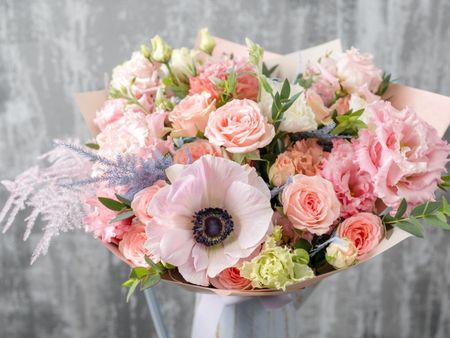 Pretty Plants For A Pastel Flower Bouquet
Pretty Plants For A Pastel Flower BouquetRoses aren’t the only romantic flower. Some romantic pastel flowers can fill in beautifully.
By Tonya Barnett
-
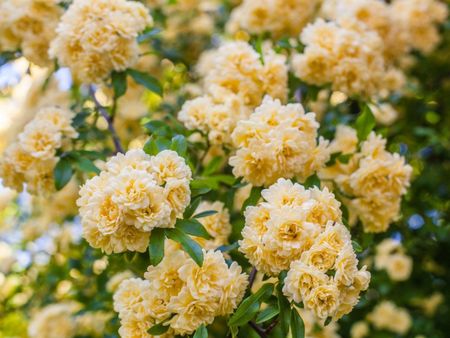 Soft Yellow Plants For A Sunny Pastel Garden
Soft Yellow Plants For A Sunny Pastel GardenClick here for ideas on some pale yellow flower varieties for pastel garden designs.
By Tonya Barnett
-
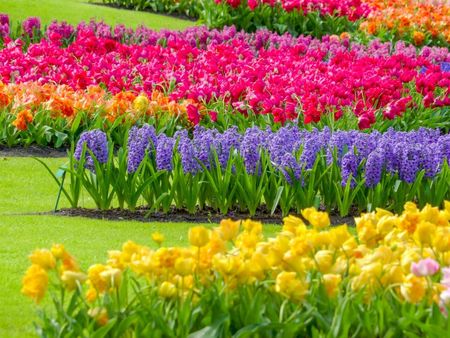 Most Common Flower Color In The World
Most Common Flower Color In The WorldWhat are the most common and least common flower colors in the world? Click here to find out.
By Mary Ellen Ellis
-
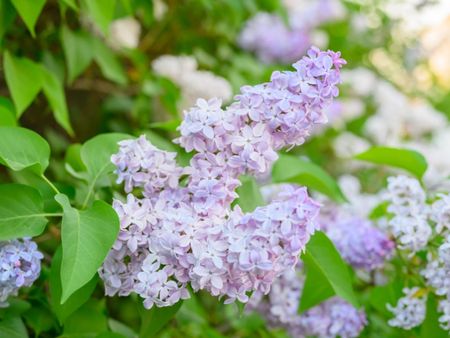 Pastel Plants For A Lovely, Light Purple Flower Garden
Pastel Plants For A Lovely, Light Purple Flower GardenClick here for ideas on some light purple plants for a pretty, pastel garden display.
By Tonya Barnett
-
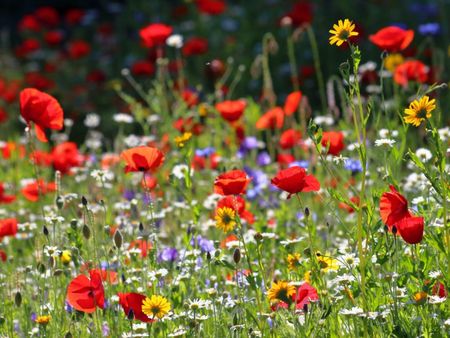 Plant Wildflower Seeds In Fall for A Stunning Spring Display
Plant Wildflower Seeds In Fall for A Stunning Spring DisplayCan you plant wildflower seeds in fall? What makes fall the best time to sow wildflower seeds? Click here for more.
By Tonya Barnett